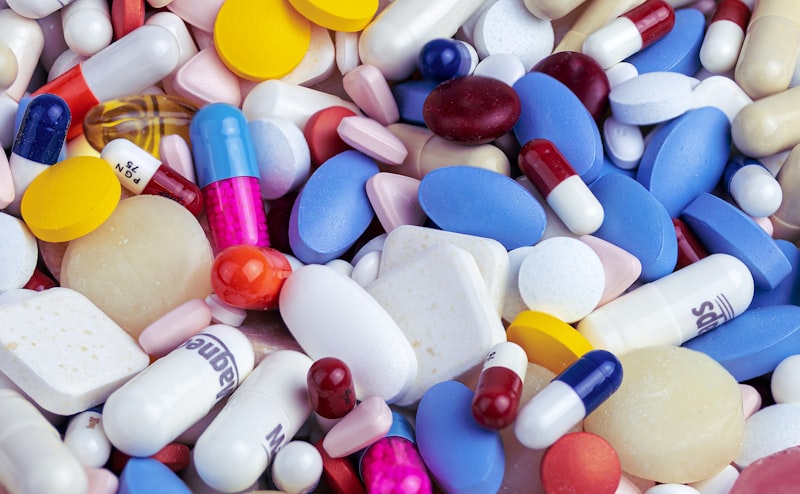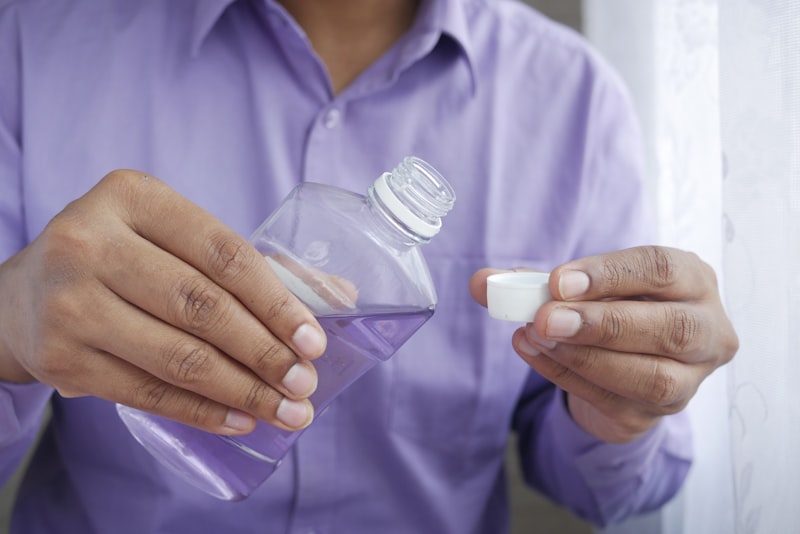One of the most common side effects of many medications is dry mouth. This occurs when your mouth doesn’t produce enough saliva. Saliva is essential for washing away food particles and neutralizing acids produced by bacteria in the mouth. Without enough saliva, you become more susceptible to cavities, gum disease, and bad breath. Imagine your mouth as a garden needing regular watering to stay healthy and vibrant—saliva serves as that nourishing water for your oral garden.
Certain medications can also cause gum overgrowth or inflammation. This side effect, known as gingival overgrowth, can make it difficult to keep your gums clean and healthy. It can create pockets around your teeth where bacteria thrive, potentially leading to gum disease. It’s like having an overgrown hedge in your yard that needs regular trimming to prevent it from taking over and causing issues.
Moreover, medications that contain sugar or are taken frequently throughout the day can increase the risk of tooth decay. Just like consuming sugary snacks, these medications provide food for harmful bacteria in your mouth, leading to enamel erosion and cavities. It’s akin to feeding sugar to pests that damage your teeth.
Antibiotics are another category of medications that can affect your oral health. They can disrupt the balance of bacteria in your mouth, leading to an overgrowth of fungi such as Candida, causing oral thrush. Think of antibiotics as a powerful but sometimes disruptive force in your oral ecosystem.
While medications are vital for managing many health conditions, they can have significant implications for your oral health. It’s essential to be aware of these potential side effects and work closely with your healthcare provider and dentist to mitigate any negative impacts on your teeth and gums. By maintaining good oral hygiene and keeping your healthcare team informed, you can minimize these effects and keep smiling brightly.
Hidden Risks: How Common Medications Affect Your Teeth and Gums
Have you ever wondered about the hidden risks lurking in your medicine cabinet? While medications are designed to heal, some common ones might be quietly affecting your dental health. It’s not just about brushing and flossing; understanding how these medications interact with your teeth and gums is crucial for maintaining a healthy smile.
Certain medications, such as antihistamines, decongestants, and antidepressants, can cause dry mouth as a side effect. Saliva plays a vital role in neutralizing acids produced by bacteria in the mouth. When saliva production decreases, the mouth becomes more acidic, creating an environment where tooth decay and gum disease can thrive.
Similarly, medications like antihypertensives and diuretics can lead to gum overgrowth. This condition, known as gingival hyperplasia, can make it difficult to keep your gums clean and healthy. It may even lead to food particles becoming trapped, increasing the risk of gum inflammation and periodontal disease.
Even over-the-counter pain relievers, such as aspirin and ibuprofen, can have adverse effects on dental health if used frequently and over prolonged periods. These medications can interfere with blood clotting, potentially leading to complications after dental procedures like extractions or root canals.
To mitigate these risks, it’s essential to communicate openly with both your dentist and healthcare provider. They can provide guidance on managing these effects while ensuring your overall health needs are met. Simple strategies like drinking plenty of water, chewing sugar-free gum to stimulate saliva production, and maintaining diligent oral hygiene can also help minimize the impact of medications on your teeth and gums.
While medications offer significant health benefits, they can also pose hidden risks to your dental health. By staying informed and proactive, you can safeguard your smile and enjoy the benefits of both good oral health and effective medical treatment.
Prescription Dangers: Medications That Could Harm Your Dental Health
Antibiotics are commonly prescribed to fight infections, yet they can sometimes lead to oral issues such as fungal infections or a condition called oral thrush. These medications alter the balance of bacteria in your mouth, potentially causing an overgrowth of yeast.
Another group of medications known to affect dental health are antihistamines. These drugs, often used to relieve allergy symptoms, can cause dry mouth as a side effect. Saliva is crucial for washing away food particles and neutralizing acids produced by bacteria in your mouth. With reduced saliva production, the risk of tooth decay and gum disease may increase.
Have you heard about medications like antacids and aspirin affecting your teeth? While they are essential for managing stomach acidity and pain relief, they can erode tooth enamel over time. Enamel erosion leaves teeth vulnerable to sensitivity and decay, impacting your overall oral health.
Furthermore, some medications used to manage chronic conditions like high blood pressure (hypertension) and depression can have oral side effects too. For instance, medications that reduce saliva flow or cause abnormal bleeding may compromise your dental health if not managed carefully.
It’s crucial to remember that while these medications are prescribed to treat specific health concerns, their impact on your dental health shouldn’t be overlooked. Maintaining good oral hygiene practices, such as brushing twice a day with fluoride toothpaste and regular dental check-ups, can help mitigate potential risks associated with these medications.
Understanding how prescription drugs can affect your dental health empowers you to take proactive steps in maintaining a healthy smile. By staying informed and discussing any concerns with your healthcare provider, you can ensure that your overall health and dental well-being are well-balanced.
Unlocking the Link: Understanding How Drugs Influence Oral Hygiene
Imagine your mouth as a bustling city, with bacteria playing both the heroes and villains in a daily drama. Now, introduce medications into this scene. Some drugs, such as antihistamines or antidepressants, can cause dry mouth as a side effect. This reduction in saliva flow isn’t just uncomfortable; it’s like unplugging the city fountain. Saliva normally washes away food particles and neutralizes acids produced by bacteria, but with less of it around, the villains (bacteria) have a field day. This can lead to an increase in cavities, gum disease, and bad breath—imagine the city falling into disrepair without water to cleanse its streets.
Other medications, like certain antibiotics, can cause changes in the balance of bacteria in your mouth. Think of these antibiotics as the superheroes that defeat specific villains but inadvertently affect innocent bystanders too. This disruption can sometimes lead to oral infections or a condition called oral thrush, where fungi grow unchecked, much like weeds taking over a garden.
Additionally, medications such as asthma inhalers can have direct effects on oral health. The powders or sprays in these inhalers can leave residue on teeth or the tongue, providing a feast for bacteria. It’s like leaving crumbs around for pests to find—a small oversight that can lead to big problems if not managed properly.
Understanding how drugs influence oral hygiene is crucial for maintaining overall health. By being aware of these effects, you can work with your healthcare provider to mitigate risks. Remember, it’s not just about brushing and flossing; it’s about understanding how every aspect of your health interacts, ensuring that your oral hygiene remains in top shape.
From Pills to Problems: The Oral Health Side Effects You Need to Know

We all rely on medications to help us feel better, but did you know they can sometimes bring unexpected oral health issues? It’s like a double-edged sword – solving one problem while potentially causing another. Let’s dive into some of the common oral health side effects that can arise from medications.
First up, dry mouth – that parched feeling when saliva production slows down. It might not sound serious, but saliva plays a crucial role in keeping our mouths healthy by washing away food particles and neutralizing acids. Medications like antihistamines, antidepressants, and certain blood pressure drugs can throw saliva production out of whack, leading to dry mouth. This condition not only feels uncomfortable but can also increase the risk of cavities and gum disease. So, staying hydrated and talking to your dentist about potential solutions is key.
Next, let’s talk about gum overgrowth, a lesser-known side effect of some medications, particularly those used to treat epilepsy, high blood pressure, and immunosuppressants. Imagine your gums growing over your teeth like ivy on a fence – not a pretty picture. This overgrowth can trap food particles, making it harder to keep your gums clean and healthy. Regular dental check-ups and good oral hygiene habits can help manage this issue effectively.
Moving on to the not-so-pleasant topic of tooth decay and erosion. Some medications, especially those containing sugar or acidic components, can contribute to tooth decay by weakening enamel or promoting bacterial growth. It’s like inviting trouble to a party you didn’t even know was happening! Keeping a close eye on your dental health and maintaining a balanced diet are essential steps in mitigating this risk.
Last but not least, discoloration of teeth or oral tissues can occur as a side effect of certain medications, including antibiotics like tetracycline. It’s like leaving a stain that just won’t budge, affecting the appearance of your smile. Consulting with your dentist can help explore options for managing or minimizing these effects.
Understanding the potential oral health side effects of medications empowers you to take proactive steps in maintaining a healthy smile. Remember, prevention and awareness are your best allies in navigating this aspect of your overall health journey.
Beyond the Bottle: Exploring Medication’s Impact on Your Teeth
Medications can work wonders for our health, yet some may unknowingly affect our dental health too. Have you ever wondered how your daily prescriptions could be influencing your teeth? Let’s dive into the lesser-known impacts medications can have beyond just treating symptoms.
Many medications, from antibiotics to antihistamines, can lead to dry mouth as a common side effect. Saliva plays a crucial role in neutralizing acids and protecting our teeth from decay. With reduced saliva production, our teeth are more vulnerable to cavities and enamel erosion, making regular dental care even more essential.
Beyond dry mouth, certain medications can also cause gum inflammation or gingivitis. These conditions not only affect the gums but also pose risks to the overall health of your teeth and jawbone. Proper oral hygiene, including regular brushing, flossing, and dental check-ups, becomes crucial to mitigate these effects.
Moreover, medications that contain sugars or syrups can contribute to tooth decay if not properly rinsed or brushed away after consumption. The residue left on teeth can fuel bacteria growth, leading to plaque buildup and potential dental issues over time.

Considering these impacts, it’s vital to communicate openly with both your healthcare provider and dentist about the medications you’re taking. They can provide guidance on maintaining good oral health while managing your medical needs effectively.
Understanding how medications can influence dental health empowers you to take proactive steps in caring for your teeth. By staying informed and proactive, you can ensure that your smile remains bright and healthy, even as you prioritize your overall well-being.
Frequently Asked Questions
How do medications affect dental health?
Learn how medications can impact your dental health, including common side effects such as dry mouth and changes in gum health. Discover tips for managing these effects to maintain optimal oral hygiene.
Should I consult my dentist about medication impacts on oral health?
Consulting your dentist about medication impacts on oral health is crucial. Dentists can provide tailored advice on how medications may affect your teeth and gums, and recommend preventive measures or adjustments to your oral care routine.
How can I minimize medication-related dental issues?
Learn how to minimize dental issues related to medication by following simple preventive measures and maintaining good oral hygiene practices.
What are common oral side effects of medications?
Discover the common oral side effects caused by medications, including dry mouth, altered taste, and mouth sores. Learn about managing these issues and when to consult a healthcare provider.
Which medications can cause oral health problems?
Learn about medications that may impact oral health, including common culprits and their effects. Discover how to manage oral health while taking medications.


